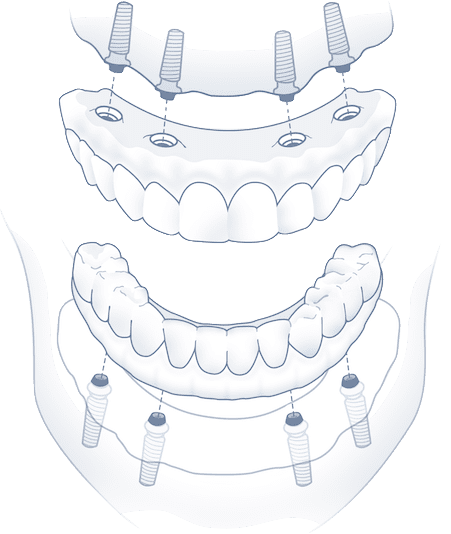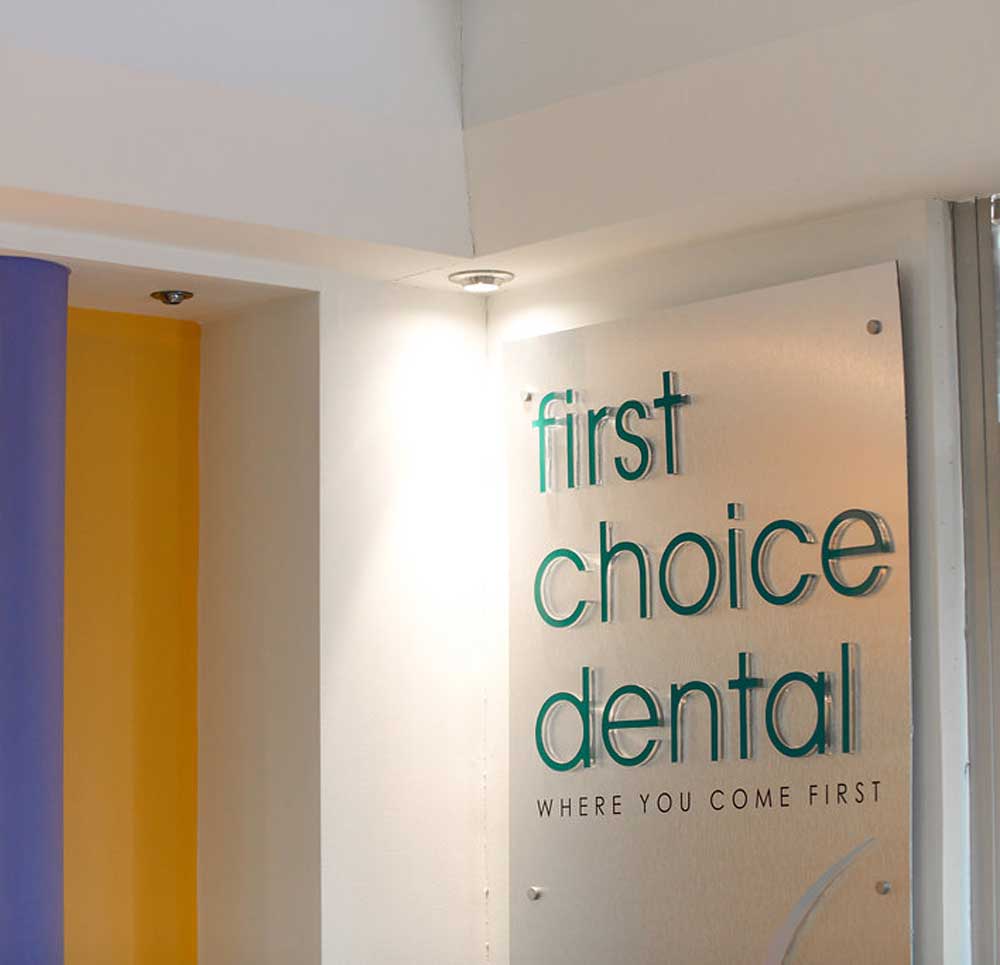Bruxism and Grinding Treatment: Everything You Need to Know
At First Choice Dental, we understand that dental health goes beyond just maintaining a beautiful smile. Bruxism, or teeth grinding, is a condition that affects many individuals, often without their awareness, and can lead to severe dental and health issues if left untreated. This blog dives deep into what bruxism is, its causes, symptoms, and the best treatments available, while highlighting how First Choice Dental can help you achieve lasting relief.
What is Bruxism?
Bruxism, commonly referred to as teeth grinding or clenching, is an involuntary condition that can occur during sleep or while awake.
- Awake Bruxism: This happens during conscious hours and is often linked to emotional triggers such as stress, anxiety, or deep concentration.
- Sleep Bruxism: Sleep bruxism takes place while sleeping and is recognised as a type of movement disorder related to sleep. Many people are unaware they grind their teeth at night until they experience symptoms like jaw pain or their dentist points out worn-down teeth.
What Causes Bruxism?
There is no single cause for bruxism, but several factors increase its likelihood:
1. Stress and Anxiety: Emotional stress is a leading cause of both awake and sleep bruxism.
2. Sleep Disorders: Conditions like obstructive sleep apnea (OSA) are closely linked with nighttime teeth grinding.
3. Lifestyle Choices: Excessive caffeine consumption, alcohol intake, smoking, and recreational drug use can heighten the risk.
4. Medications: Some medications, especially antidepressants, have been associated with teeth grinding as a potential side effect.
5. Personality Traits: Individuals with aggressive, hyperactive, or perfectionist tendencies are more prone to teeth grinding.
6. Malocclusion: An improper bite or misaligned teeth may also contribute to bruxism in some cases.
Common Symptoms of Bruxism
Recognising the symptoms is essential for early diagnosis and treatment. Key signs include:
1. Teeth Grinding: Audible grinding during sleep, often reported by a partner.
2. Tooth Damage: Flattened, chipped, or worn-down teeth that may lead to sensitivity.
3. Jaw Pain: Tightness, discomfort, or soreness in the jaw muscles.
4. Headaches: Frequent tension headaches, especially upon waking.
5. Ear Pain: Sensations resembling an earache, though unrelated to ear infections.
6. Disturbed Sleep: Poor-quality sleep due to grinding noises or jaw discomfort.
Potential Complications:
Without treatment, bruxism can lead to:
1. Severe Tooth Damage: Chronic grinding can wear down tooth enamel, increasing the risk of cavities and tooth loss.
2. Temporomandibular Joint Disorders (TMD): Bruxism can strain the jaw joint, causing pain, clicking, and difficulty chewing.
3. Chronic Headaches: Frequent headaches can disrupt daily life and reduce overall quality of life.
4. Facial Pain: Muscle fatigue and soreness in the face.
5. Sleep Disruption: Poor sleep quality can affect overall health and well-being.
How is Bruxism Diagnosed?
Identifying bruxism typically requires using a variety of diagnostic approaches.
- Dental Examination: Dentists check for signs of tooth wear, jaw tenderness, and bite alignment issues.
- Patient History: Discussing stress levels, sleep habits, and lifestyle factors helps identify triggers.
- Sleep Studies: For sleep bruxism, specialised studies may monitor muscle activity during sleep.
Treatment Options for Bruxism and Grinding
Addressing bruxism requires a multi-faceted approach tailored to the individual’s needs. Common treatments include:
1. Stress Management Techniques
- Mindfulness practices like yoga, meditation, and breathing exercises can help alleviate stress-related bruxism.
- Professional counselling or therapy may be recommended for anxiety-related cases.
2. Behavioural Therapy
- Dentists and specialists can train patients to recognise and stop clenching or grinding during the day.
- Jaw relaxation exercises help relieve muscle tension.
3. Dental Appliances
- Custom Mouth guards: Night guards are professionally designed to fit your teeth and prevent grinding during sleep.
- Splints: Orthodontic devices that adjust the position of the jaw and teeth to reduce grinding.
4. Medications
- In severe cases, healthcare providers might recommend muscle relaxants to ease the condition.
- In certain cases, Botox injections can relax the jaw muscles and reduce grinding activity.
5. Lifestyle Adjustments
- Reducing caffeine and alcohol intake can significantly lower the risk of bruxism.
- Creating a consistent bedtime routine helps encourage relaxation and supports healthy sleep habits.
Preventing Bruxism: Tips for Long-Term Relief
Prevention is often better than cure. Here are some practical steps to minimise bruxism:
- Maintain Good Sleep Hygiene: Create a calming bedtime routine, avoid screens before sleep, and ensure a comfortable sleeping environment.
- Limit Stimulants: Reduce caffeine, tobacco, and alcohol consumption, particularly in the evening.
- Stay Hydrated: Dehydration can exacerbate muscle tension, so drink plenty of water.
- Regular Dental Check-Ups: Early diagnosis and intervention can prevent complications.
Why Choose First Choice Dental for Bruxism and Grinding Treatment?
At First Choice Dental, we believe that every patient deserves a comfortable and stress-free dental experience. Our holistic and patient-focused approach makes us a leader in the industry.
- Expert Diagnoses: Our experienced dentists conduct thorough evaluations to accurately diagnose bruxism and its severity.
- Customised Treatments: We offer tailored solutions, including high-quality night guards and splints, designed for optimal comfort and effectiveness.
- Stress-Free Environment: We strive to make your dental visits feel as relaxing as a day at the spa, prioritising your well-being.
- Advanced Solutions: From traditional treatments to Botox therapy for severe cases, we provide cutting-edge options to ensure lasting relief.
- Ongoing Suppor: Our team provides resources and advice for long-term management and prevention of bruxism.
The Long-Term Effects of Untreated Bruxism on Your Oral Health
Bruxism, or teeth grinding, may seem harmless at first, especially if symptoms like jaw soreness or occasional headaches are mild. However, when left untreated, bruxism can lead to severe long-term consequences for your oral health, as well as your overall well-being.
1. Severe Tooth Wear and Enamel Erosion
One of the most noticeable effects of untreated bruxism is the gradual wearing down of your teeth. Grinding exerts immense pressure on your teeth, far beyond what they experience during normal activities like chewing. Over time, this can:
- Damage Tooth Enamel: The protective outer layer of your teeth becomes thinner, making teeth more prone to sensitivity and decay.
- Alter Tooth Shape: Teeth can appear shorter or flatter due to constant grinding.
- Increase Risk of Cracks and Chips: Excessive force weakens teeth, making them more susceptible to structural damage.
2. Increased Tooth Sensitivity
As enamel wears away, the dentine layer underneath is exposed, leading to heightened sensitivity to hot, cold, and sweet foods and drinks. This sensitivity can significantly impact your eating habits and quality of life.
3. Higher Risk of Tooth Decay and Cavities
Damaged enamel makes it easier for bacteria to penetrate the tooth’s surface, increasing the risk of cavities and infections. Without proper intervention, this could lead to more extensive treatments like root canals or tooth extractions.
4. Jaw Pain and Temporomandibular Joint Disorders (TMD)
Chronic bruxism puts significant strain on the temporomandibular joint (TMJ), which connects your jaw to your skull. Over time, this can cause:
- Persistent jaw pain or stiffness.
- Clicking or popping sounds in the jaw.
- Difficulty opening or closing your mouth.
5. Gum Recession and Tooth Loss
While bruxism primarily affects teeth, the excessive pressure can also impact the gums. The force can lead to gum recession, exposing the roots of teeth and increasing their vulnerability. In severe cases, prolonged grinding can loosen teeth, potentially leading to tooth loss.
6. Changes in Facial Structure
Chronic bruxism can cause hypertrophy (enlargement) of the jaw muscles, particularly the masseter muscle. Over time, this can alter the appearance of your face, giving it a more square or bulky appearance.
How to Prevent Long-Term Damage
Early detection and treatment of bruxism are essential to avoid these complications. Regular dental check-ups can help identify the signs of teeth grinding before they cause severe damage. Using a custom-made night guard, practising stress management, and addressing lifestyle factors like caffeine or alcohol consumption can make a significant difference.
Bruxism and Grinding in Children: Causes and Treatments
Bruxism is not just an adult problem—many children also grind their teeth. Although teeth grinding is sometimes common in children, frequent or severe cases may need professional evaluation.
1. Common Causes of Bruxism in Children
The causes of bruxism in children differ slightly from those in adults:
- Teething or Misaligned Teeth: Discomfort from emerging teeth or a misaligned bite can trigger grinding.
- Stress or Anxiety: School pressures, family changes, or new environments can cause emotional stress that manifests as bruxism.
- Sleep Disorders: Conditions like snoring, sleep apnea, or restless leg syndrome may be linked to nighttime teeth grinding.
- Hyperactivity: Children with ADHD or hyperactive tendencies are more likely to develop bruxism.
- Pain Response: Grinding can be a response to pain from an earache or teething.
2. Signs of Bruxism in Children
Parents may notice the following symptoms:
- Grinding noises during sleep.
- Complaints of a sore jaw or facial pain upon waking.
- Worn-down or chipped teeth.
- Difficulty chewing or biting.
- Increased tooth sensitivity.
3. Potential Complications
If untreated, bruxism in children can lead to:
- Premature tooth wear, which may affect the growth and alignment of adult teeth.
- Jaw pain and headaches that interfere with daily activities.
- Development of TMD in severe cases.
4. Effective Treatments for Childhood Bruxism
While many children outgrow bruxism, persistent cases require intervention. Treatment options include:
- Custom Mouth guards: Specially designed for children to protect teeth during sleep.
- Stress Management: Helping children cope with stress through relaxation techniques, play therapy, or talking to a counsellor.
- Dental Check-ups: Monitoring tooth development and addressing alignment issues.
- Lifestyle Changes: Limiting screen time and establishing calming bedtime routines can improve sleep quality and reduce grinding.
Bruxism is a common yet often overlooked condition that can significantly impact your dental and overall health. Identifying the symptoms early and seeking professional treatment can prevent complications and enhance your quality of life. At First Choice Dental, we specialise in creating a first-class dental experience tailored to your needs, ensuring that your journey to managing bruxism is both effective and stress-free.
If you suspect you have bruxism or want to learn more about our services, don’t hesitate to contact us today.
Book an Appointment
by calling us on 02 4647 4570
Our Location
Suite 3, 20 Somerset Ave Narellan NSW 2567



